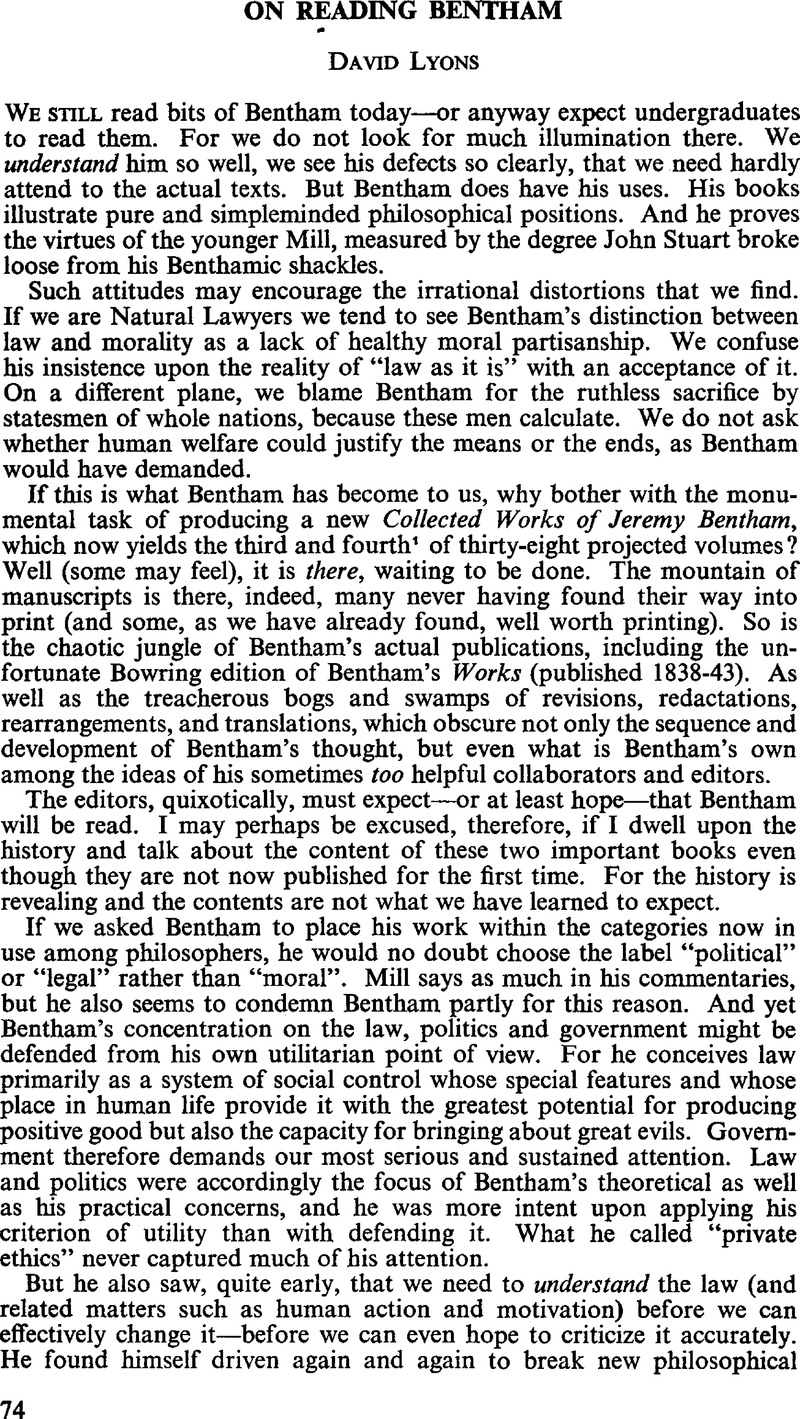Published online by Cambridge University Press: 25 February 2009

1 Bentham, Jeremy, An Introduction to the Principles of Morals and LegislationGoogle Scholar, edited by Burns, J. H. and Hart, H. L. A., pp. 343 + xliiiGoogle Scholar, and Of Laws in General, edited by Hart, H. L. A., pp. 342 + xlii (London: Athlone Press, 1970), price of each volume £6.Google Scholar
2 Henry Sidgwick does say that there are grounds for thinking that Bentham uses self-interest as the standard of private ethics and general interest for legislation. But he does not indicate the grounds or explain why he finally concludes that Bentham is a universalist. Sidgwick's scholarly curiosity would no doubt have been whetted had he recognized the difference between general interest in the universalist's sense and the explicit parochialism that can be seen even in one of the quotes from Bentham that Sidgwick uses at this point. See The Methods of Ethics, Bk. I, n. appended to Ch. VI (pp. 87–8 in the 7th edn., 1962).Google Scholar
3 See Copleston, Frederick, A History of Philosophy, Vol. 8, Pt. I, Ch. I, sect. 3 (pp. 26ff in the Doubleday-Image edn., 1967).Google Scholar
4 I have pushed this inquiry further in a paper to be published in The Royal Institute of Philosophy Lectures for 1970–1971. I hope to discuss relevant aspects of Bentham's theory of law in another paper soon.